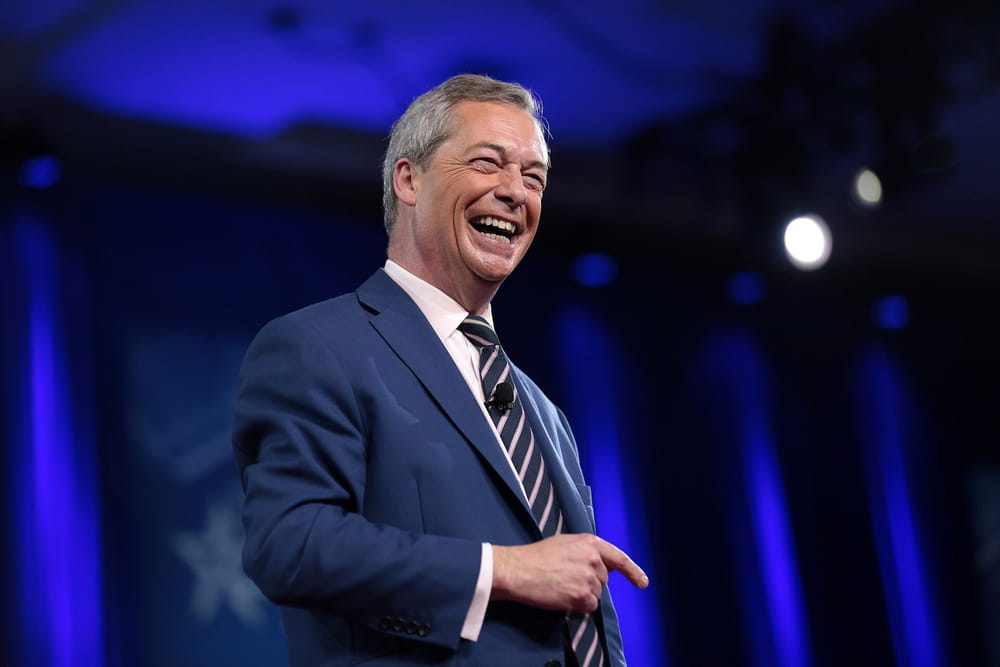A Green by any other name
Zack Polanski couldn't have foreseen the antisemitism he'd experience in politics. But his name change at 18 shows his lifelong commitment to standing as himself, and with minorities everywhere.

Names matter in politics. Consider Obamacare, Bidenomics, or the “isms” we add to the end of a Prime Minister’s name to describe their era of ideologies: Thatcherism, Blairism, and so on. When I think about a time a politician’s name became important, so oft-uttered that it became a song, I think of the “Oh, Jeremy Corbyn” chant – the irreverent anthem which swept up crowds at Glastonbury in 2017, along with significant parts of the nation. Today, names are a powerful tool, but their potential to mobilise the public around a shared message is also ancient knowledge. Take the Tower of Babel, a story in the Torah about builders who, seeking to “make a name for themselves”, aspired to building a city so high that it touched the heavens.
Green Party leader Zack Polanski is one individual trying to rally the public under his beliefs, but so far, his name appears more of an obstacle than a vehicle. As the Green Party gains popularity under his leadership, the right has escalated its attacks on Polanski – its criticism turning from political to personal. Not only is Polanski Jewish, he is one of four Jewish politicians to have led a political party in Britain over the past 100 years. When he was 18, he changed his surname from Paulden in order to honour the identity of his ancestors. This detail in his background has been described as a part of his “unusual path” by the BBC and has made him the target of online trolling. The politician has also recently received a slew of insults for his appearance from the media, including Jeremy Clarkson’s bizarre rant about his teeth in The Sunday Times and Daily Mail’s Quentin Letts’ comment about him having “shades of Hannibal Lecter”.
It is no longer just Polanski’s policies – his vocal support of trans rights, anti-Zionism, and a wealth tax – that are ruffling critics' feathers, but the entire notion that someone like him, who identifies with minority status, can be different from the status quo and yet still belong.
Examples of Jewish party leaders in Britain are sparse and spread over a long period; there are even fewer Jewish party leaders whose policies did not demonstrate a commitment to traditional forms of British nationalism, which some writers have explored as a symptom of assimilation. Ed Miliband was another openly Jewish party leader; Benjamin Disraeli, the only British prime minister with Jewish ancestry, had a more complex relationship with Judaism. While born to Jewish Italian parents, Disraeli converted to Anglicanism at the age of 12. Despite this, he experienced antisemitism throughout his political career. To varying degrees, and albeit across totally different political climates (Disraeli was in office between 1874 and 1880), these politicians demonstrated their commitment to a unified British identity, either through progressive patriotism or support of the British Empire. One of Miliband’s major ideas during his time in government, for instance, was One Nation Labour, which adopted the idea that a collective British pride could unify the country’s different social classes. The notion was borrowed from Disraeli, who saw the empire as a symbol of Britain’s shared vision of prosperity and economic freedom.
It feels apt that Polanski actually chose his name – an intentional association of himself with the history, culture, and language of a foreign country. “Polanski” is of Polish origin: it is one of those proud Ashkenazi names tricky to anglicise, that must be changed almost entirely in order to conceal its roots (hence “Paulden”). The decision to reclaim his ancestry, and embrace his difference, might be “unusual” to British media institutions. However, it is difficult to believe that this perspective has nothing to do with Polanski’s overall failure to adhere to the expectations our culture unfairly enforces on Jewish politicians, especially those running political parties.
Some may see this as a discreet form of antisemitism, but you only need look at his treatment by the far right to witness the full scale of violence inflicted on Jews in politics who refuse to conform. Polanski is one of the few MPs to claim that Britain is an active participant in the Gaza genocide. In response to his position on Gaza, Reform UK posted an AI-generated image of the politician resembling Svengali – a late 19th-century caricature of an Ashkenazi Jewish man, bearing yellow teeth, a sinister grin, and beady eyes. Here, he is also wearing a badge in support of Palestine. The image is horrifying because it is, obviously, extremely racist. But our analysis must go deeper than mere observation. For daring to criticise the British state, Polanski was punished, dehumanised, and rendered as a caricature of an unruly Jewish figure – someone to be feared. The image is horrifying because it shows how Jewish people in positions of power, without them promising that they pose no threat to the legacy of empire, are ultimately a transgression. They do not belong.
The backlash Polanski receives for his politics begs the question: what kind of person would he need to be in order to appease the political and media establishment? The reaction is, surely, in the politician’s own words, a good indication that he is threatening enough to strike a nerve. Polanski’s leadership here in the UK, like Mamdani’s recent election in the US, is a hopeful sign that things can get better, although I am often cautious about placing a great deal of faith in any politician. We’ve experienced too many times over the past few years how they can let us down, and make promises they can’t keep.
Still, I find myself drawn to Polanski’s story – the series of steps which ultimately shaped his position as an outsider. Polanski could not have foreseen how he would later be treated as a Jewish person in politics, but regardless, his decision to name himself was an act of courage and rebellion. Hopefully, that’s how more will come to learn it.▼
Correction: The article has been updated to clarify that British Prime Minister Benjamin Disraeli was born to Italian Jewish parents; however, in 1817, Disraeli's father baptised his children as Christians. The correction emphasises the antisemitism Disraeli experienced throughout his political career despite his religious conversion.
Author

Alexandra Diamond-Rivlin is an artist, writer and an editor at Vashti.
Sign up for The Pickle and New, From Vashti.
Stay up to date with Vashti.



